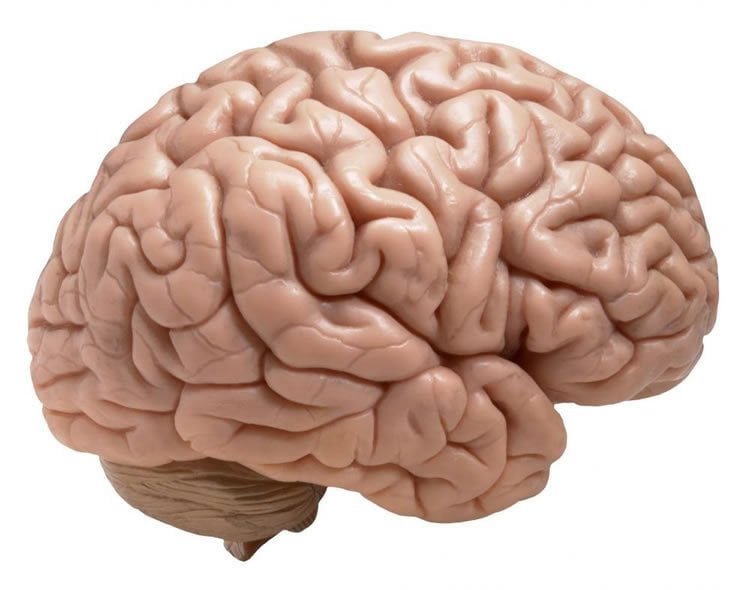Summary: Researchers have identified increased inflammatory activation markers in the brains of people with major depressive disorder who report suicidal ideations. The findings support recent research that anti-inflammatories may provide antidepressant effects for some patients.
Source: Elsevier.
Patients with major depressive disorder (MDD) have increased brain levels of a marker of microglial activation, a sign of inflammation, according to a new study in Biological Psychiatry by researchers at the University of Manchester, United Kingdom. In the study, Dr. Peter Talbot and colleagues found that the increase in the inflammatory marker was present specifically in patients with MDD who were experiencing suicidal thoughts, pinning the role of inflammation to suicidality rather than a diagnosis of MDD itself.
“Our findings are the first results in living depressed patients to suggest that this microglial activation is most prominent in those with suicidal thinking,” said Dr. Talbot. Previous studies suggesting this link have relied on brain tissue collected from patients after death.
“This paper is an important addition to the view that inflammation is a feature of the neurobiology of a subgroup of depressed patients, in this case the group with suicidal ideation,” said Dr. John Krystal, Editor of Biological Psychiatry. “This observation is particularly important in light of recent evidence supporting a personalized medicine approach to depression, i.e., that anti-inflammatory drugs may have antidepressant effects that are limited to patients with demonstrable inflammation.”
In the study, first author Dr. Sophie Holmes and colleagues assessed inflammation in 14 patients with moderate-to-severe depression who were not currently taking any antidepressant medications. Immune cells called microglia activate as part of the body’s inflammatory response, so the researchers used a brain imaging technique to measure a substance that increases in activated microglia.

The evidence for immune activation was most prominent in the anterior cingulate cortex, a brain region involved in mood regulation and implicated in the biological origin of depression, confirming the results of a previous study that first identified altered microglial activation in medication-free MDD patients. Smaller increases were also found in the insula and prefrontal cortex.
“The field now has two independent reports — our study and a 2015 report by Setiawan and colleagues in Toronto — showing essentially the same thing: that there is evidence for inflammation, more specifically microglial activation, in the brains of living patients during a major depressive episode,” said Dr. Talbot.
This link suggests that among depressed patients, neuroinflammation may be a factor contributing to the risk for suicidal thoughts or behavior. According to Dr. Talbot, the findings “emphasise the importance of further research into the question of whether novel treatments that reduce microglial activation may be effective in major depression and suicidality.”
Source: Rhiannon Bugno – Elsevier
Image Source: NeuroscienceNews.com image is in the public domain.
Original Research: Abstract for “Elevated Translocator Protein in Anterior Cingulate in Major Depression and a Role for Inflammation in Suicidal Thinking: A Positron Emission Tomography Study” by Sophie E. Holmes, Rainer Hinz, Silke Conen, Catherine J. Gregory, Julian C. Matthews, Jose M. Anton-Rodriguez, Alexander Gerhard, and Peter S. Talbot in Biological Psychiatry. Published online Sugust 11 2017 doi:10.1016/j.biopsych.2017.08.005
[cbtabs][cbtab title=”MLA”]Elsevier “Brain Inflammation Linked to Suicidal Thinking in Depression.” NeuroscienceNews. NeuroscienceNews, 21 September 2017.
<https://neurosciencenews.com/inflammation-suicidal-thought-7536/>.[/cbtab][cbtab title=”APA”]Elsevier (2017, September 21). Brain Inflammation Linked to Suicidal Thinking in Depression. NeuroscienceNews. Retrieved September 21, 2017 from https://neurosciencenews.com/inflammation-suicidal-thought-7536/[/cbtab][cbtab title=”Chicago”]Elsevier “Brain Inflammation Linked to Suicidal Thinking in Depression.” https://neurosciencenews.com/inflammation-suicidal-thought-7536/ (accessed September 21, 2017).[/cbtab][/cbtabs]
Abstract
Elevated Translocator Protein in Anterior Cingulate in Major Depression and a Role for Inflammation in Suicidal Thinking: A Positron Emission Tomography Study
Background
Major depressive disorder is associated with raised peripheral inflammatory markers. Mounting evidence also suggests that inflammation is involved in suicidal behavior. However, the involvement of inflammation in the brains of individuals with depression, and its association with suicidal ideation, needs further clarification. Translocator protein (TSPO), which is upregulated in activated glia (predominantly microglia), can be measured as an indication of neuroinflammation in vivo using positron emission tomography and TSPO-specific radioligands.
Methods
We used [11C](R)-PK11195 positron emission tomography to compare TSPO availability in the anterior cingulate cortex (ACC), prefrontal cortex, and insula between 14 medication-free patients in a major depressive episode of at least moderate severity and 13 matched healthy control subjects. In a post hoc analysis, we also compared TSPO availability between patients with and without suicidal thoughts.
Results
Multivariate analysis of variance indicated significantly higher TSPO in patients compared with control subjects (p = .005). The elevation was of large effect size and significant in the ACC (p = .022, Cohen’s d = 0.95), with smaller nonsignificant elevations in the prefrontal cortex (p = .342, Cohen’s d = 0.38) and insula (p = .466, Cohen’s d = 0.29). TSPO was not elevated in patients without suicidal thinking but was significantly increased in those with suicidal thoughts compared with those without, most robustly in the ACC (p = .008) and insula (p = .023).
Conclusions
We confirm evidence for increased TSPO availability, suggestive of predominantly microglial activation, in the ACC during a moderate to severe major depressive episode. Our findings provide further incentive for evaluating anti-inflammatory therapies in major depressive disorder.
“Elevated Translocator Protein in Anterior Cingulate in Major Depression and a Role for Inflammation in Suicidal Thinking: A Positron Emission Tomography Study” by Sophie E. Holmes, Rainer Hinz, Silke Conen, Catherine J. Gregory, Julian C. Matthews, Jose M. Anton-Rodriguez, Alexander Gerhard, and Peter S. Talbot in Biological Psychiatry. Published online Sugust 11 2017 doi:10.1016/j.biopsych.2017.08.005







